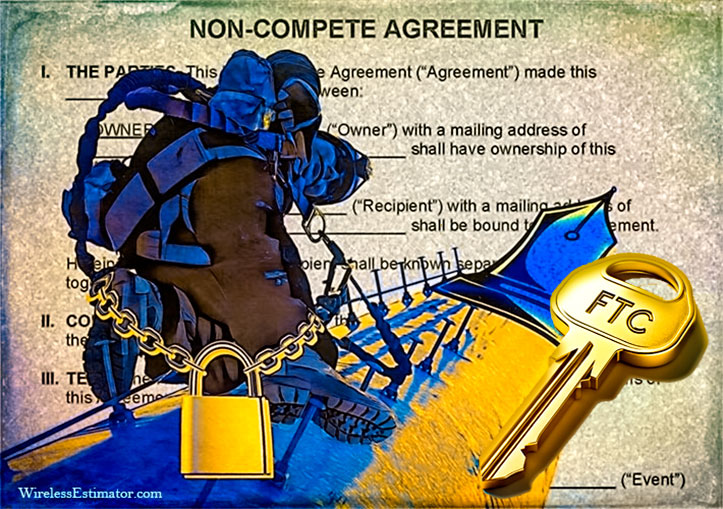
NONCOMPETES WILL BE ABOLISHED —The Federal Trade Commission has decided that noncompete agreements are relics of the past and will ban most of them in about four months. They’ve been regulated in the United States for over 212 years.
UPDATE: Following the announcement of the FTC’s final rule, the U.S. Chamber of Commerce swiftly filed a lawsuit challenging the prohibition of non-compete clauses. The lawsuit contends that the FTC lacks the necessary authority under the FTC Act to regulate unfair competition methods.
Moreover, according to the “major questions doctrine” as interpreted by the U.S. Supreme Court, the rule should be overturned for lacking explicit Congressional approval, especially given the Court’s recent critical stance on administrative rulemaking. The Chamber’s lawsuit also argues that the rule unlawfully delegates legislative power, retroactively affects existing agreements, and is arbitrary due to its reliance on inadequate studies and disregard for alternative solutions proposed during the public consultation phase.
Further legal challenges from other stakeholders are anticipated, which could leave the rule’s future uncertain as these disputes progress.
The Federal Trade Commission (FTC) has made a definitive move to prohibit the use of noncompete clauses across various industries, including wireless construction. Announced on Tuesday, the FTC said this action aims to empower employees by allowing them to switch employers freely, boosting job creation, raising wages, and intensifying competition among firms.
This sweeping decision will dismantle noncompete agreements that currently bind approximately 30 million U.S. workers. Non-compete contracts restrict employees from joining competitors for a specified period after leaving a company. The FTC estimates that eliminating these contracts could create 8,500 startups annually and increase worker wages by up to $488 billion over the next decade.
The proposal has sparked controversy despite the broad support from labor unions such as the AFL-CIO and the Service Employees International Union. The U.S. Chamber of Commerce and some business leaders argue that the FTC lacks the authority for such a rule, which they claim undermines the ability to protect trade secrets and invest in employee training.
In announcing the ban, the FTC found that employers have several alternatives to noncompetes that still enable firms to protect their investments without having to enforce a noncompete.
Trade secret laws and non-disclosure agreements (NDAs) both provide employers with well-established means to protect proprietary and other sensitive information. Researchers estimate that over 95% of workers with a noncompete already have an NDA.
These concerns echo those in the wireless construction sector, where non-compete clauses are notably prevalent. An article last year by Wireless Estimator highlighted that many firms use these clauses to retain skilled workers, although enforcement proves costly and inefficient.
The proposed rule, which the FTC issued more than a year after the initial announcement, also targets similar restrictive practices. It aims to curb broad nondisclosure agreements and repayment clauses for training costs, effectively serving as non-compete agreements.
The rule would significantly affect wireless construction workers and company executives, by allowing greater mobility and reducing industry employment barriers.
Legal challenges are expected as the rule sets to become law 120 days after publication in the Federal Register. However, existing noncompete agreements for senior executives who make at least $151,164 annually will remain intact, though no new noncompete can be issued.
The rule was approved in a 3-to-2 vote. FTC Commissioners Melissa Holyoak and Andrew Ferguson, both Republicans, voted against the measure. It will be effective 120 days after it is published in the Federal Register, unless legal challenges delay or block the change.
President Biden and FTC Chair Lina M. Khan have praised the rule’s potential to liberate the workforce and stimulate economic growth. Yet, the upcoming legal battles suggest a contentious path ahead, particularly as sectors like wireless construction navigate the balance between competition and proprietary protection.

















